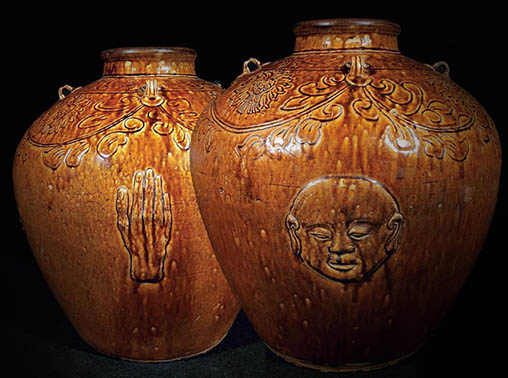
Information:
‘Head and hand’ jar, with plain shoulder, eight vertical ear-loops, glazed brown, the hand vertically applied. Another version, hand in horizontally position. Guangzhou, Qing Dynasty, second half 18th century. This collection was acquired from Sarawak.
Dimensions :
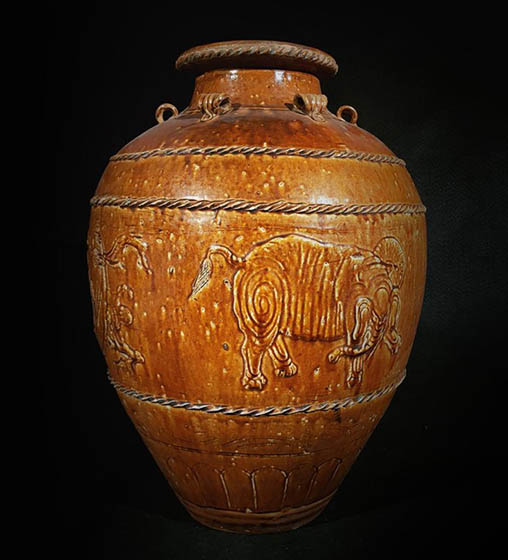
Information:
Jar moulded with petal and scroll-bands, pair of elephants, horns of plenty and five ‘twist rattan’ bands applied including on the mouth rim. Six vertical handles, glazed brown. Guangzhou, 18th century, Qing Dynasty.
Dimensions:
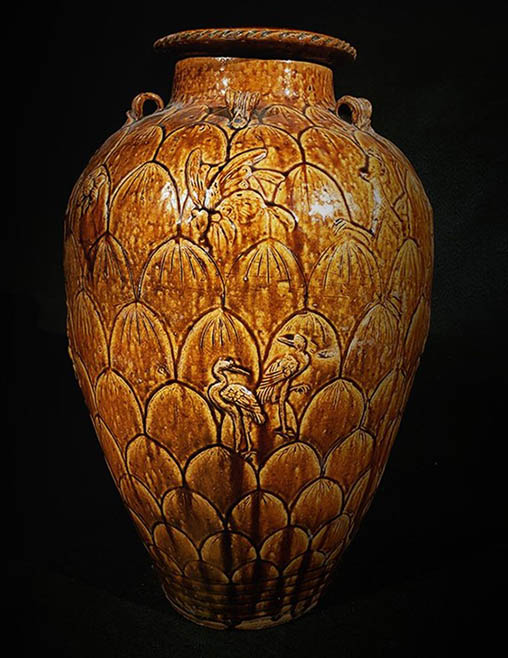
Information:
Jar, molded with plant and blooming flowers, eight vertical handles, glazed brown. In the early of this century till the 1980's, Bruneian called it sampak. Guangdong, Qing Dynasty, 19th century.
Dimensions :
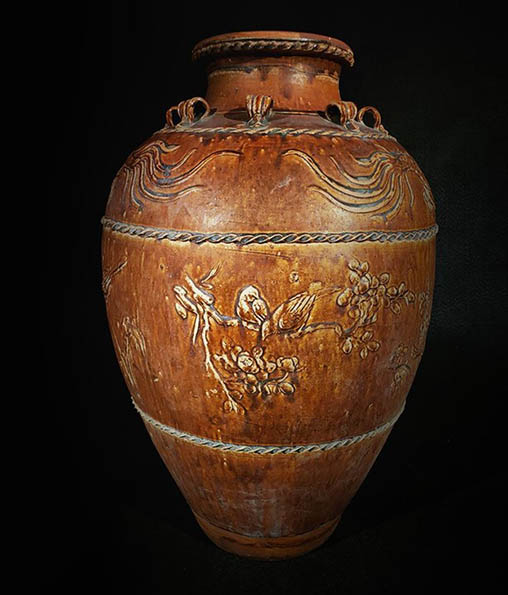
Information:
Jar, moulded with dragon, crane, thrush and butterfly between rows of standing petals; six vertical handles, glazed brown. The same pattern was coloured in green and blue. Southern China, Shiwan kiln, Guangzhou, early 19th century, same collection with Sabah and Brunei National Museum.
Dimensions :
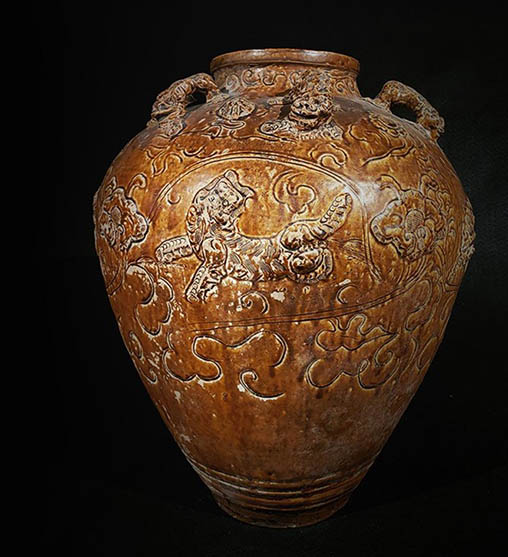
Information:
Brown glazed jar, with six vertical earloops, every earloop with tiger head. On the head, written Chinese character “wang” means king. Barbarra Harrison mentions this type of jar known as the Gosanh Vietnamese jar, but no strong evidence from the site. Ming Dynasty, 15-16th century. Southern China.
Dimensions :
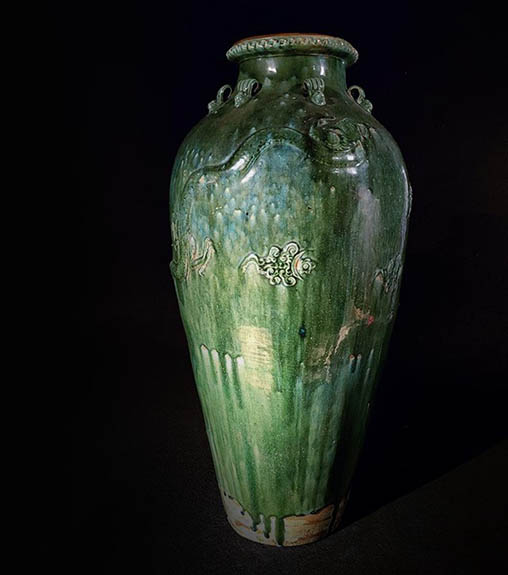
Information:
Tall jar, with green glazed, high neck, without any motif on shoulder, standing dragon catching fire ball. Dayaks in Kalimantan, called it as ‘tajau’ for rice wine processing. Believe as a copy from the Ming Dynasty jar by local potters, maybe from Singkawang, Indonesia or Sarawak. They copy it because it is broken or the community needs it as a part of cultural practice. Late 19th century. Singkawang or Sarawak.
Dimensions :
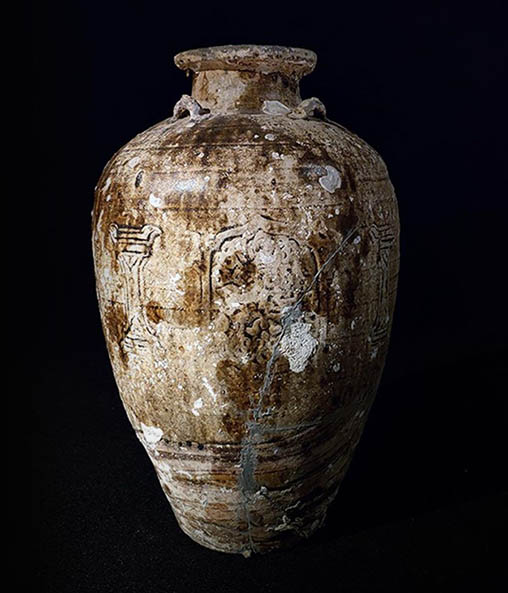
Information: Champa of Vietnam jar with four horizontal loop handles. Decorated with medallions of flowers. Shipwreck finding. Horizontal loop handles, statues like design in between medallions. Most of the Champa jars have a brown glaze, some with polychrome colour, they are light and not heavily potted. Circa 16th century, Champa, Vietnam.
Dimensions :
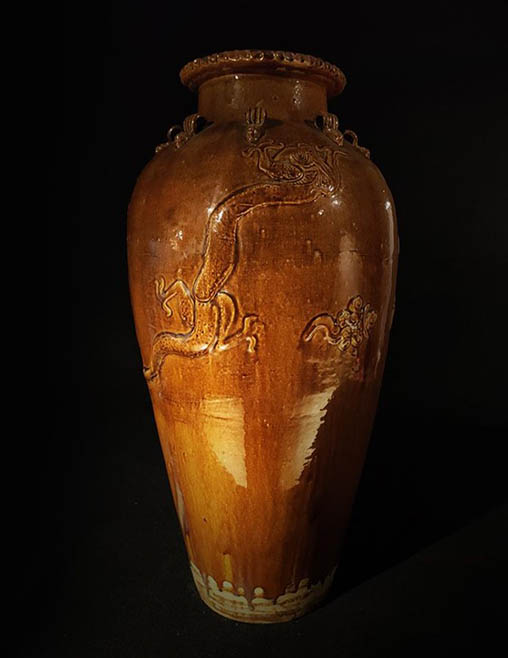
Information: During the Qing Dynasty, this type of stoneware jar was called Guangdong Wares, made in kilns in Guangdong, southern China. It has a smooth brown running glaze, and is decorated with applied dragons and clouds. But, in the beginning of the 20th century, potters from Guangdong settled in Borneo, then they were copied for replacing damaged or broken jars. Kuching, early, 20th C.
Dimensions :

Information: Blue and white piquant stoneware jar with ear-loops. The design seems like tempayan or martaban, but in a small scale. Qing Dynasty, 17-19th Century.
Dimensions :
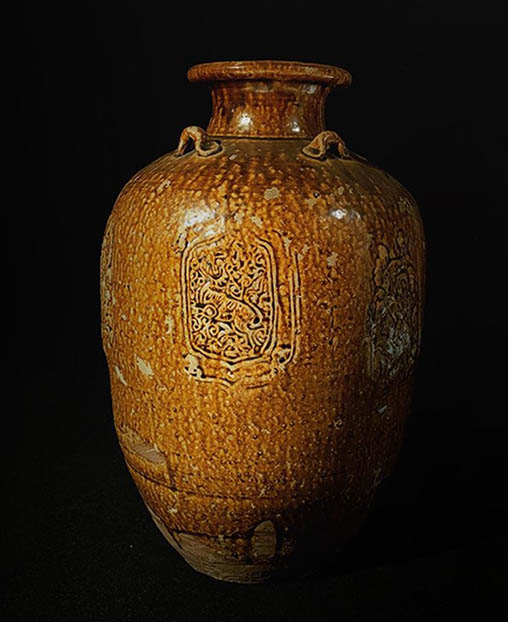
Information: Almost bulbous in shape, high neck everted plain lip, decorated with medallion on the body. Glaze much darker on the shoulder, running lightly brown through the body. Annamese stoneware jar, during Ly to Tran Dynasties (1009-1400 AD).
Dimensions :
Last Update: 11/04/2022